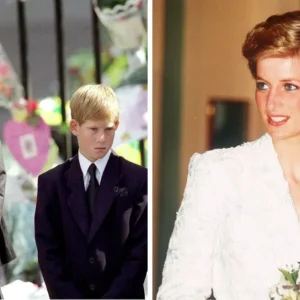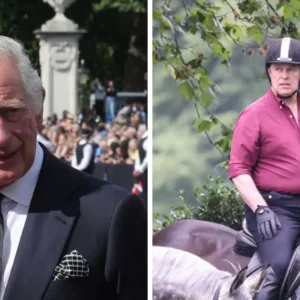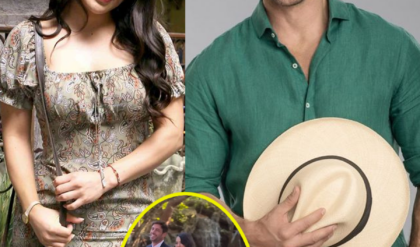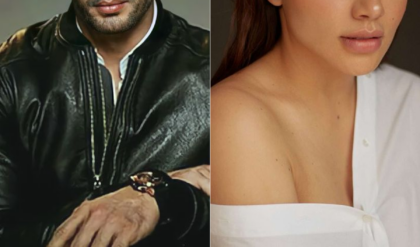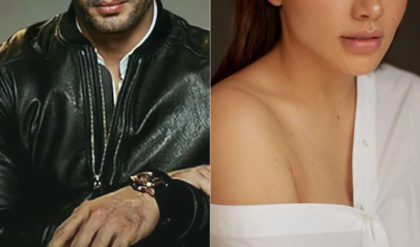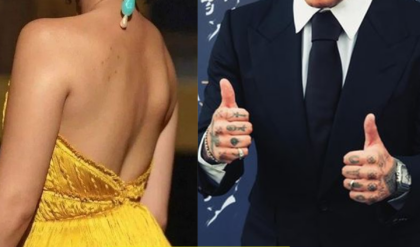“Today in Tokyo, beneath the Eiffel Tower, In Ghana’s Blackstar Square,
In Johannesburg, in Pittsburgh, In Birmingham, Alabama and Birmingham England,
We are missing Michael Jackson, But we do know that we had him
And we are the world.”|

On June 25, 2009, the world stopped for a moment, knowing it was forever changed. Michael Jackson, beloved across borders and cultures, took his last breath. On that day, 15 years ago, his death was completely unexpected: Michael was just weeks shy of an unprecedented, long-planned, 50-night residency at the O2 Arena in London.
But as word of his death traveled at an immeasurable speed across the planet, and after the initial denials–this had to be an evil internet hoax, right, right—most of us remember where we were when we realized it was true. Some collapsed where they stood. Some searched for their own breath which too, had disappeared. And all of us at some point, just froze in our grief. What was there to say, how were we to capture an emotion that had no name? This wasn’t just celebrity type shock that leads to a tweeted sound and fury meaning noting. This was real, whole body, mind and soul pain because whether we’d met him or not, we knew Michael. We’d grown up alongside him, as peers, as younger siblings, as an extended family that seemed boundless. And it didn’t make sense.
Did this mean we would never hear his singularly euphonious voice again, the voice that was that could be at once angelic and dangerous, vulnerable and undefeatable?
Did it mean that we would never see just one more move, elastic, rhythmic, awe-inspiring and trend-setting?
Did it mean his words, his songwriting, his poetry, had been snatched from us and with it, our higher ground understanding of ourselves?
It couldn’t be true. Michael was the one who called us to love the Earth:
Did you ever stop to notice / All the blood we’ve shed before? / Did you ever stop to notice / This crying Earth, these weeping shores?
It was Michael who said,
Tell me what has become of my life… / I’m tired of bein’ the victim of hate / You’re rapin’ me of my pride / Oh, for God’s sake /I look to heaven to fulfill its prophecy… / Black man, black mail / Throw the brother in jail
All I wanna say is that they don’t really care about us
And after those first days that alternated between stunned silence and torrents of tears, we accepted that it was true. We were forever more deprived of those endlessly elastic, effortlessly graceful legs. Those precise legs. And the sounds, his sounds–the perfect amalgam of melody and rhythm that made millions move, generations smile, and masses cry.
Jackson’s influence extended across decades. During his life, numerous artists, including Chris Brown, Ne-Yo, and others, perhaps more poignantly his beloved baby sister Janet, all seemed to believe that the Jackson way led to all points excellence: his fearless, complex, approach to singing and musical his dance moves and visionary short films, his idiosyncratic sense of style. sense. And even now, a decade-and-a-half on, we still see Michael, the soul of him, in contemporary R&B and Hip-Hop music and culture.
Because despite the unfortunate moniker foisted upon him, “King of Pop,” it most assuredly was not a title he claimed himself. In fact, it no one really did. It was a chopped down version of what his dear friend, Elizabeth Taylor said when she presented Michael with the Heritage Award for Career Achievement at the 1989 Soul Train Awards. The legendary Ms. Taylor called the legendary Mr. Jackson “The true king of pop, rock and soul.”
She called him the whole package and perhaps that was just all too much for the Jann Wenner’s of the world to take, They shifted the all-everything Michael to Pop Michael. Like Pop Brittney Spears, I guess.
Young Michael and the Jackson 5 With Mrs. Coretta Scott King Source: Afro Newspaper/Gado / Getty
But rather than devote himself to producing simply catchy tunes, sort of like the click-bait of music, Jackson was fully, multi-dimensionally Black. His peerless ambition for post-modern excellence connected with his Black audience, especially, and his professional approach can be likened to a hip-hop artist’s approach. His come-up in the music business derived from humble beginnings, a hard-driving (some would say abusive) father where at all costs, poverty had to be overcome. Michael wrote songs by beatboxing them into a recorder. He synthesized street dancing moves made popular by breakdancers. He even put real-life gang members in short films like “Beat It” and “The Way You Make Me Feel.”
Jackson was methodical when it came to his image. His choices to wear high-water pants with all-white socks – drawing the viewer’s attention to his feet while dancing, wearing a single white sequined glove on stage, the military aesthetic of his public outfits, and others were his successful attempts to transform himself into a brand; something bigger than himself; something that so many people could recognize and relate to for years to come.
It should surprise no one then that so many rappers and modern singers still gravitate to Jackson’s music and style since his passing. Kanye West dedicated his 2010 album, My Beautiful Dark Twisted Fantasy, to Jackson’s memory while celebrating him with a parade in the long-form video of “Runaway.”
Coi Leray rocked a sequined white glove at her 2023 Summer Jam performance in New York, as did Usher during this year’s Super Bowl Halftime Show. The legacy of Jackson lives on through today’s movers and shakers.
News
MEGHAN MARKLE’S LATEST EFFORT UNDER FIRE: IS IT JUST SELF-PROMOTION?
Meghan Markle’s newest venture is facing criticism long before production has even begun! “The problem is I sometimes think Meghan can’t let go and wants it to be about her…” royal expert Rupert Bell dished on the “Kinsey Schofield Unfiltered” podcast. SOURCE:…
‘GOOD KING HARRY’: PRINCESS DIANA FELT THAT FUTURE ROYAL TELL-ALL SCRIBE WOULD MAKE ‘A BETTER’ MONARCH THAN PRINCE WILLIAM
Diana, Princess of Wales, once nicknamed her youngest son “Good King Harry,” due to his “general gusto” compared to the real future monarch and his elder brother, Prince William. “William doesn’t want to be king and I worry about that,” royal author Angela Levin wrote in…
FORGING HER OWN PATH: LADY LOUISE WINDSOR TO AVOID ‘ROYAL BURDEN’ AS SHE FOCUSES ON UNIVERSITY LIFE
Lady Louise Windsor, 20, and 16th in line to the British throne has decided to create her own path in life after previously contemplating a life of service to the Crown. “I think it’s probably too early to tell,” GBN’s royal correspondent Cameron…
“Royal Restructure Stumbles: Princess Anne’s Injury Puts Strain on Slimmed-Down Monarchy”
Prince William has reportedly taken King Charles III’s “slimmed-down monarchy” initiative to the extreme. But as the next king readies to slim down the Crown even more than his dad, a “severe warning” has been issued by some royal analysts when it comes…
FORTUNE FAVORS THE BOLD: KING CHARLES TO UNLEASH MONEY-MAKING STREAM AT ROYAL LODGE ONCE HE KICKS PRINCE ANDREW OUT
King Charles III is reportedly set to start a rental money-making stream once he finally boots his younger brother, Prince Andrew, from the Royal Lodge near Windsor Castle. “Rental of £1million a year is not far-fetched for a house of that size…
Jemele Hill Unleashes Furious Rant Claiming Caitlin Clark Receives Different Treatment From Media Compared To Black Players
Jemele and Caitlin Clark (Photo by Leon Bennett/Getty Images) (Photo by Andy Lyons/Getty Images) Jemele Hill has a serious issue with Caitlin Clark, but it’s not from something she did or said, but from the media who covers her. Caitlin Clark, the…
End of content
No more pages to load

